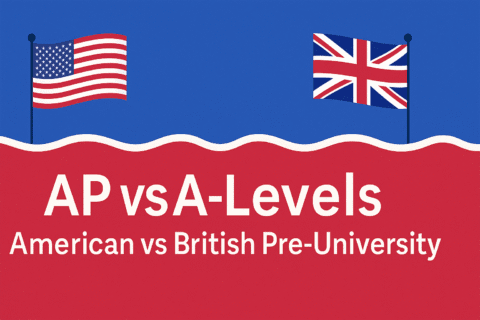AP Exams: Why I’ll Never Forget the Day I Took Mine (and Why You Shouldn’t Sleep on Them Either)
Okay, let me tell you a story.
The night before my AP Calculus exam, I was spiraling between last-minute Khan Academy replays and wondering if I should just fake a fever. (Spoiler alert: I didn’t. I showed up. And it changed everything.)
If you’ve landed here, chances are you’re somewhere between mildly stressed and full-on exam-season panic. First of all, breathe. You’re not alone—and second, let’s break down this whole AP Exam thing in a way that doesn’t feel like a recycled textbook description.
So… What Are AP Exams, Really?
Let’s ditch the jargon. Advanced Placement (AP) Exams are basically your ticket to showing colleges you’re not just playing school—you’re owning it.
Offered by the College Board, these exams cap off year-long AP classes in subjects like Biology, U.S. History, Computer Science, and more. Score high (usually a 4 or 5 out of 5), and you could earn college credit before even stepping on campus.
📘 Translation: Free credits. Less tuition. Earlier graduation. Bragging rights.
But here’s the real tea: it’s not just about the score. It’s about mindset, momentum, and proving to yourself that you’re capable of tackling college-level work while still in high school.
Why AP Exams Matter (Even If You’re Not Sure About College Yet)
Save thousands on college tuition. Each AP credit you earn = fewer classes you pay for.
Skip boring intro classes in college. Who wants to retake “Intro to Psych” when you already aced the AP?
Stand out to colleges. Admissions officers eat this stuff up—it shows you challenged yourself.
Unlock dual enrollment options. Some schools let you jump straight into advanced coursework.
And let’s not ignore the confidence boost. Walking out of that testing room knowing you crushed it? Chef’s kiss.
What No One Tells You About Studying for AP Exams
Here’s the part where I keep it 100 with you:
Studying for APs isn’t about grinding 10 hours a day and sacrificing your social life. It’s about smart planning and knowing how the test thinks.
🔍 Insider Tip #1: Every AP exam follows a rhythm. Learn it.
🔍 Insider Tip #2: Practice FRQs (free-response questions) like your life depends on it.
🔍 Insider Tip #3: Use old exams. They’re free. They’re gold. They’re on the College Board site.
Also, don’t underestimate the power of study groups (read: group chat + Quizlet = miracles). Or YouTube. Or your friend who already took the exam and lived to tell the tale.
My Favorite (and Actually Helpful) Resources:
📺 Heimler’s History (if you’re taking APUSH or Gov—this guy’s a legend)
📱 AP Daily Videos on YouTube (free and College Board-approved)
📘 Barron’s vs. Princeton Review: Barron’s = harder practice. Princeton = chill explanations. Choose your vibe.
📲 Quizlet decks with spaced repetition (game-changer for memorization)
Real Talk: How to Stay Sane While Studying
I know the pressure’s real. The “if I fail, my future is over” spiral is real.
But here’s your reminder: AP exams are not the final boss of your life. They’re stepping stones. Opportunities. And yes, totally beatable.
Take breaks. Move your body. Eat something besides coffee and panic. And when you’re ready? Go back in and give it hell.
The Day of the Exam: What I Wish I Knew
Bring:
2-3 sharpened #2 pencils (not mechanical)
Black or blue pens
Your AP ID label sheet
A watch (if allowed—some centers don’t let you bring smartwatches)
A snack + water for break time
Pro Tip: Don’t talk about the test with friends during the break. That’ll mess with your head. You’ve got this.
🎓 What Is the AP Exam For?
The AP Exam (Advanced Placement Exam) is designed to:
✅ 1. Earn College Credit (While in High School!)
If you score well (usually a 3, 4, or 5 out of 5), many universities will give you college credit. That means:
You can skip intro-level courses
Possibly graduate early
Save on tuition (less $$ for college = more for iced coffee or side hustles 😎)
✅ 2. Boost College Applications
Taking AP courses + exams shows colleges:
You’re up for a challenge
You’re prepping for college-level work
You’re not just clocking time—you’re building skills
🧠 TL;DR: It screams “I’m college-ready!” louder than any fancy resume font ever could.
✅ 3. Level Up Your Skills
AP Exams make you better at:
Critical thinking
Writing under pressure
Time management
Problem-solving like a pro
These aren’t just test tricks—they’re real-life, workplace, and college survival superpowers.
✅ 4. Explore Career Interests Early
Taking AP Psychology? You might discover you want to go into therapy, neuroscience, or HR.
AP Computer Science? Hello, future coder or AI entrepreneur.
It’s like academic speed dating for careers.
Is AP harder than SAT?
🧪 Short Answer:
Yes, AP exams are generally harder than the SAT.
But here’s why—it’s not just about difficulty, it’s about purpose and depth.
🧠 SAT = Broad, Basic, Strategy-Based
Goal: Test your general reasoning, reading, writing, and math skills.
Level: High school level (think: algebra, basic grammar, reading comprehension)
Vibe: Fast-paced, strategic. You need speed, accuracy, and test-taking tricks.
Structure: Same format every time, heavy on multiple-choice.
Use Case: College admissions 🏫
📌 Think of the SAT like a snapshot of your potential. Not too deep, but wide in coverage.
📚 AP Exams = Deep, College-Level Mastery
Goal: Prove mastery of one specific subject (like AP Biology, AP U.S. History, or AP Calc).
Level: College-level content taught in high school. It’s intense.
Vibe: Focused, academic, content-heavy. You need real understanding, not just strategy.
Structure: Mix of multiple-choice + free-response questions (FRQs). Writing, analysis, problem-solving.
Use Case: College credit + showing rigor on your transcript 💪
📌 AP is like diving deep into one ocean. You need to understand it, not just skim the surface.
🔍 TL;DR:
| Feature | SAT | AP Exam |
|---|---|---|
| Focus | General academic skills | Specific subject mastery |
| Difficulty Level | Moderate (broad but shallow) | Harder (narrow but deep) |
| Format | All multiple-choice + essay (optional) | MCQs + Essays/FRQs |
| Purpose | College admissions | College credit + academic rigor |
| Required For? | Most colleges (yes) | Optional, but highly recommended |
🗣️ Final Verdict?
The SAT tests your ability to think fast.
The AP tests your ability to think deep.
So yeah, AP is tougher in terms of content. But SAT can be mentally exhausting in its own right.
🎯 Pro tip: Do well on both and you’ll look unstoppable on college apps.
Is a 70% a 5 on the AP exam?
❓Is a 70% a 5 on the AP Exam?
Yes… sometimes. 🤯
Unlike your regular school exams, the AP Exam scoring is not based on a traditional percentage scale (like 90 = A, 80 = B, etc.).
📊 Here’s How It Works:
AP Exams are scored from 1 to 5, with:
5 = Extremely Well Qualified
4 = Well Qualified
3 = Qualified (often enough for college credit)
2 = Possibly Qualified
1 = No Recommendation
BUT! You’re not graded on raw percentages. Instead, College Board uses a scaled score system. That means your raw score (right/wrong answers) gets converted through a curve.
🧮 Example:
Let’s take AP U.S. History (as a rough idea):
| Raw Score % (Estimate) | AP Score |
|---|---|
| 70%+ | 5 |
| ~55–69% | 4 |
| ~45–54% | 3 |
So yes, a raw score of ~70% could land you a 5—depending on the exam and year. Some AP exams are tougher, so the curve is more generous.
🧠 Why the Curve?
Because AP exams are hard, and College Board wants to normalize scores across:
Different test versions
Varying levels of difficulty
Changing student performance each year
It’s all about standardization, not just counting points.
✅ TL;DR:
A 70% raw score can definitely be a 5 on some AP exams.
Each subject is different. AP Physics is not curved the same way as AP Psych.
You can miss a LOT of questions and still get a top score.
Do you get $100 for passing an AP exam?
While the College Board doesn’t offer cash rewards for passing AP exams, some schools and districts have implemented their own incentive programs. These initiatives, often funded by private donors or educational organizations, provide financial rewards to students who achieve high scores on AP exams.
💵 Examples of AP Exam Incentive Programs:
Dallas, Texas: The Advanced Placement Incentive Program (APIP) offers students $100 for each AP exam passed with a score of 3 or higher. Teachers also receive bonuses for their students’ successes.
Bismarck, North Dakota: Through the National Math and Science Initiative, students earn $100 for scoring a 4 or 5 on AP exams in science, math, or English.
Prosper Independent School District (Texas): Students receive $100 for each AP exam scored at 4 or 5.
Various Schools: Some schools offer tiered rewards, such as $50 for a score of 3, $75 for a 4, and $100 for a 5.
📌 Important Notes:
Availability Varies: These incentive programs are not universal. Their availability depends on individual school or district policies and funding.
Funding Sources: Many of these programs are supported by private donations, grants, or partnerships with educational organizations.
Program Changes: Incentive programs can be modified or discontinued based on funding and administrative decisions. For instance, IDEA Public Schools previously offered a $100 reward per passed AP exam but later rescinded the program, leading to student petitions for its reinstatement.
✅ Bottom Line:
While some students have the opportunity to earn $100 or more for passing AP exams, these rewards are not standard across all schools. If you’re interested in such incentives, it’s best to consult with your school’s AP coordinator or administration to learn about any available programs.
If you’re looking for more information on AP exam incentives or need assistance with AP exam preparation, feel free to ask!
Final Thoughts: You’re More Ready Than You Think
You might not feel ready. That’s normal.
But if you’ve shown up to class, taken notes, put in some work, and now you’re here reading this? You’re doing better than you realize.
AP exams are just one chapter in your story. A hard one, sure. But one that builds grit, confidence, and maybe even helps you get into your dream school with a little less student debt.
So yeah. Go get that 5. I’m rooting for you.
Got a question? Need a resource? Want me to review your FRQ essay for AP Lit? Drop it in the comments—I’m here for it.


